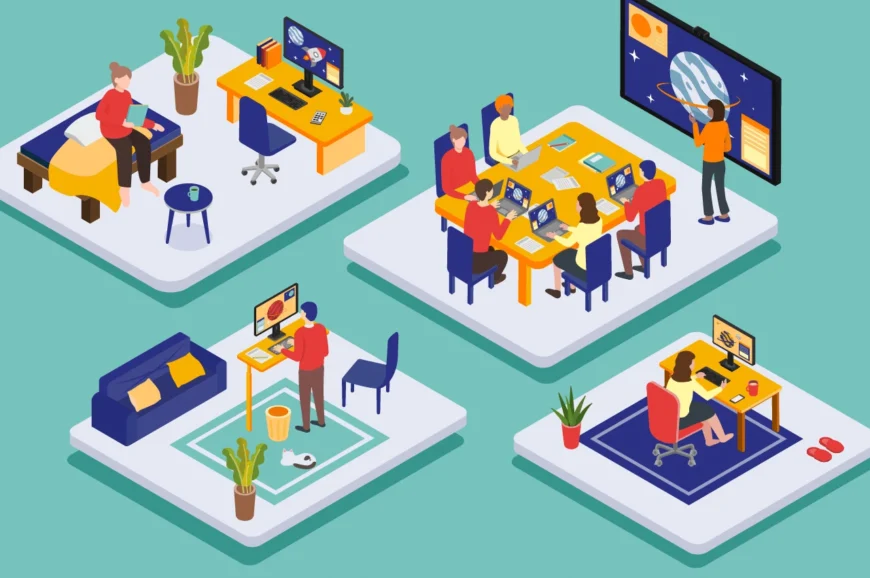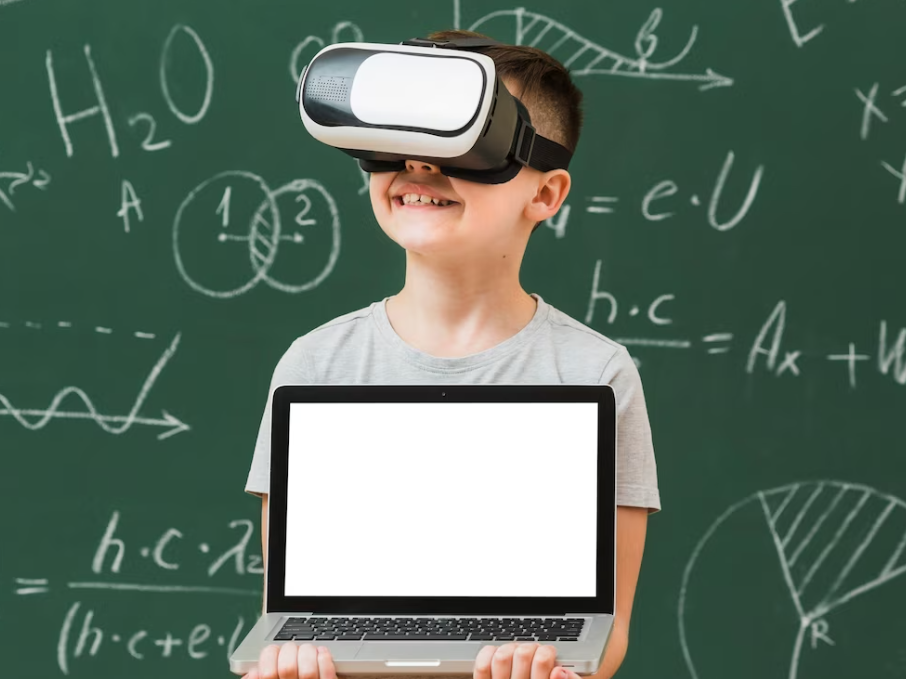As the world evolves at an unprecedented pace, so does the landscape of education. The future of teaching is being reshaped by innovative methods that embrace technological advancements, personalized approaches, and a focus on holistic student development.
In this article, we delve into the transformative trends that are redefining classrooms and empowering educators to create engaging and effective learning experiences.
The Digital Revolution: How Technology is Shaping Classroom Learning

The digital revolution has had a profound impact on education, reshaping the way students learn and teachers instruct. Technological advancements, such as interactive whiteboards, educational apps, materials for online learning and cloud-based learning platforms, have become integral tools in modern classrooms.
These digital resources facilitate active engagement, collaboration, and accessibility, enabling students to explore concepts beyond textbooks and providing educators with versatile teaching aids.
Moreover, technology has opened up opportunities for distance learning and virtual classrooms, enabling students to access education from anywhere in the world. The digital revolution has not only increased the accessibility of education but also enriched the learning experience by integrating multimedia, simulations, and interactive content that cater to diverse learning styles.
Personalized Learning: Tailoring Education to Individual Needs
One size does not fit all when it comes to education. Personalized learning is an approach that recognizes the unique strengths, weaknesses, and interests of each student, tailoring the learning experience to meet their individual needs.
Technology plays a vital role in enabling personalized learning, as adaptive learning platforms can analyze student data and provide customized content and feedback based on their performance and progress.
By embracing personalized learning, educators create more engaging and relevant learning experiences that resonate with students. Students are empowered to take ownership of their learning journey, fostering a sense of autonomy and intrinsic motivation.
Project-Based Learning: Fostering Critical Thinking and Collaboration
Project-based learning (PBL) is a pedagogical approach that centers on real-world problem-solving and hands-on activities. Instead of traditional lectures, students work on projects that require critical thinking, research, collaboration, and creativity. PBL fosters a deeper understanding of concepts as students apply theoretical knowledge to practical scenarios.
Through project-based learning, students develop valuable skills such as communication, problem-solving, and teamwork. PBL also nurtures a sense of curiosity and a desire for lifelong learning, as students engage with meaningful and relevant projects that connect classroom learning to the real world.
Flipped Classrooms: Reimagining the Learning Experience

The flipped classroom model flips the traditional instructional approach. Instead of teachers delivering lectures during class time, students access pre-recorded video lessons or content outside of class. Class time is then dedicated to discussions, activities, and collaborative learning experiences.
This flipped approach enables students to learn at their own pace, review content as needed, and come prepared for interactive class sessions. Flipped classrooms encourage active engagement and foster deeper understanding through peer-to-peer interactions and application of knowledge.
Gamification in Education: Engaging Students through Playful Learning
Gamification leverages game elements and mechanics in educational contexts to motivate and engage students in their learning journey. By introducing elements such as points, badges, leaderboards, and rewards, educators can create a sense of achievement and friendly competition, encouraging students to progress and excel in their studies.
Gamification taps into students’ natural inclination for play and curiosity, making learning more enjoyable and stimulating. It can be applied across various subjects and grade levels, promoting active participation and boosting student motivation.
Virtual Reality in the Classroom: Opening New Horizons for Exploration
Virtual reality (VR) is revolutionizing classroom experiences by transporting students to virtual worlds and immersive simulations. Whether exploring ancient civilizations, diving into the depths of the ocean, or taking a virtual field trip to outer space, VR allows students to engage with content in ways that were previously impossible.
VR enhances experiential learning, making abstract concepts tangible and relevant. It caters to different learning styles and promotes empathy by enabling students to see the world through different perspectives. As VR technology becomes more accessible, its potential to revolutionize education is only growing.
AI and Machine Learning: Enhancing Teaching and Assessment

Artificial intelligence (AI) and machine learning are transforming education by automating administrative tasks, personalizing learning paths, and enhancing assessment methods. AI-powered educational platforms can analyze vast amounts of student data, providing insights that inform instructional decisions and interventions.
Moreover, AI can identify individual learning gaps and offer personalized recommendations to help students progress. Adaptive learning platforms use machine learning algorithms to continuously adjust content and difficulty levels based on student performance, ensuring that each student receives the support they need.
Social and Emotional Learning (SEL): Nurturing Well-Being and Empathy
Educating the whole child involves fostering social and emotional skills alongside academic knowledge. Social and emotional learning (SEL) focuses on developing students’ emotional intelligence, self-awareness, empathy, and interpersonal skills.
Integrating SEL into the curriculum creates a supportive and inclusive learning environment where students feel valued and understood. SEL programs promote positive behavior, emotional regulation, and conflict resolution, contributing to improved well-being and positive relationships within the classroom and beyond.
Teacher Professional Development: Preparing Educators for an Innovative Future
Embracing the future of teaching requires empowering educators with the knowledge and skills to effectively implement innovative methods in their classrooms. Professional development plays a crucial role in equipping teachers with the tools they need to navigate the changing landscape of education.
Teacher professional development programs can focus on training in technology integration, project-based learning techniques, gamification strategies, and other innovative pedagogies. Moreover, continuous professional development ensures that teachers stay informed about the latest research and best practices, fostering a culture of lifelong learning among educators.
Conclusion

The future of teaching is a dynamic and ever-evolving landscape that embraces change, innovation, and student-centered approaches. The digital revolution has opened up unprecedented possibilities for enhancing classroom learning, making education more accessible and engaging for students.
Personalized learning tailors education to individual needs, empowering students to take charge of their learning journey.
Project-based learning flipped classrooms, and gamification strategies foster critical thinking, collaboration, and active participation among students. Virtual reality and AI technologies offer immersive and personalized learning experiences, while social and emotional learning nurtures students’ well-being and empathy.
As we navigate this transformative future of teaching, investing in teacher professional development becomes essential to equip educators with the knowledge and skills to implement innovative methods effectively.
Embracing these innovative approaches will undoubtedly shape a new era of education, one that prepares students to thrive in an ever-changing world and make a positive impact on society.




